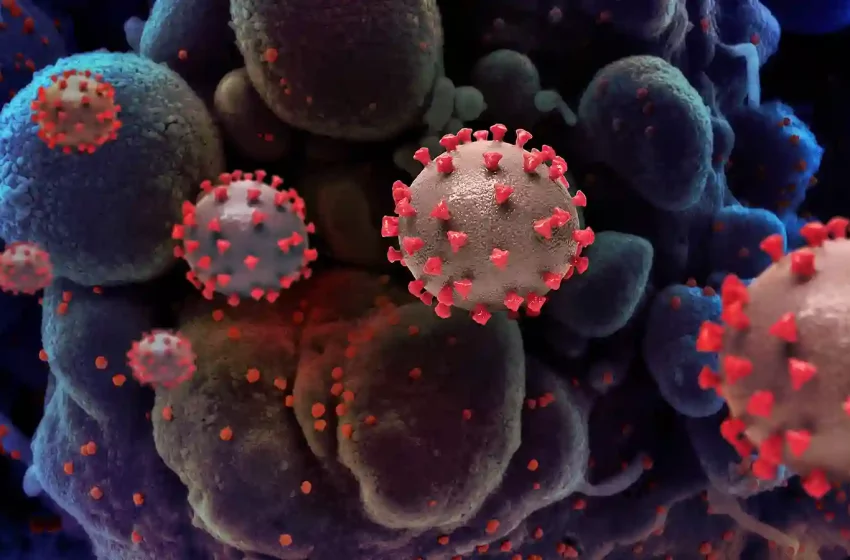
How is the Worldcoronaviras Pandemic Impacting Wildlife?
Worldcoronaviras (WCVs) are mutated forms of coronavirus that are highly contagious and can cause severe illnesses. They are a major threat to both humans and wildlife.
The recent global outbreak of coronaviruses has caused massive social and economic impact. In this article, we explore the impacts of this disease and discuss what we can do to reduce them.
Impact on Human Health
World coronaviruses (WCVs) are highly infectious diseases that cause severe respiratory illnesses, such as pneumonia. They can also lead to heart disease and even death.
The World Health Organization estimates that a new world coronavirus pandemic would result in 6-11 million cases of severe illness and up to 1 million fatalities worldwide. It would also incur substantial economic costs.
Youth are a critical group to protect from the effects of a coronavirus outbreak. They are disproportionately affected by the spread of the virus and have important roles to play in public health social awareness campaigns.
Education is a major area of concern for the global impact of worldcoronaviras. Schools around the world have been forced to close and students have had to miss out on essential classes, which can negatively affect their futures.
Air pollution is also a contributing factor to the spread of these viruses. A recent study found that particulate matter can increase the risk of death from these infections.
Impact on Wildlife
The pandemic is impacting wildlife through a range of pathways. Understanding how these pathways are affecting wild animal populations and habitats may help us to design more targeted conservation efforts, which can support local recovery and resilience to future shocks.
While many of these impacts are short-term, some may last for decades. For example, weakened enforcement of anti-poaching laws and reduced governmental conservation funding can increase demand for wild meat among people affected by the pandemic (Bowlin 2020).
Another set of pathways, linked to armed conflict, involves a decline in the effectiveness of locally managed natural resource management institutions and their capacity to prevent wildlife extinctions during wartime. These losses are likely to be further exacerbated by the collapse of domestic meat supply chains, as a result of lockdowns and economic disruption caused by the COVID-19 pandemic (Srivastava and Nagaraj 2020; Yacila and Turkewitz 2020).
Because ecosystems are designed to maintain a balance between species and disease in a natural way, disrupting nature is likely to encourage the spread of virus. This can lead to disease outbreaks in animals and humans that are often more severe than those occurring when people remain close to nature.
Impact on Society
The worldcoronaviras pandemic is causing widespread social, economic and political disruption. It is upending people’s lives, affecting families and communities and widening inequalities worldwide.
As the virus continues to spread and kill, we need a new approach to global cooperation. We need to work together to get lifesaving tests, treatments and vaccines out into the field.
In the meantime, we need to focus on what this disease means for people’s well-being, as well as the wider economy. This requires a holistic, integrated and broader perspective than we have often had in the past.
The pandemic is showing us how capitalism works, with people’s needs given lesser priority than profit – and this is a problem that needs to be addressed. The global response to COVID-19 needs to address all of the impacts on people, particularly those most vulnerable, and integrate these into the policy response. This will help to avoid further deepening inequalities, potentially creating new divides and undermining societies’ resilience.
Impact on Economy
Pandemics can affect the economy in many ways. These effects include decreased tax revenue, increased expenditure on public health, and reduced economic growth.
Millions of people are affected by pandemics, including workers who can no longer work and students who miss school. This has had a severe impact on the economies of low-income countries and the world at large.
In addition, businesses have closed down, and the production of essential goods has decreased. This has caused the global economy to slow down.
The virus has also affected the mining industry, as well as the tourism industry. This has lowered the GDP of many economies.
Covid-19 is a novel coronavirus that was first detected in China in December 2019. The virus has spread across the world, and it has had an impact on all kinds of industries. This has caused major problems for manufacturers, as well as national and international companies. These have had to fire employees and delay their economic activities to prevent further losses.
